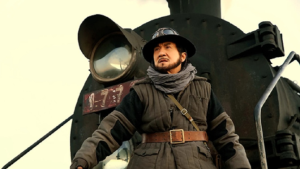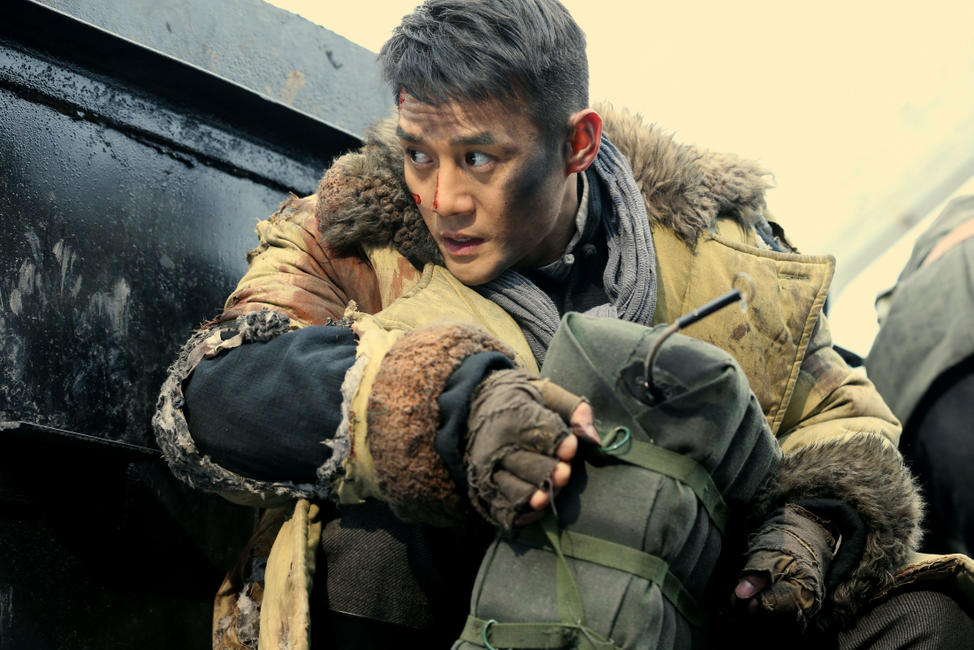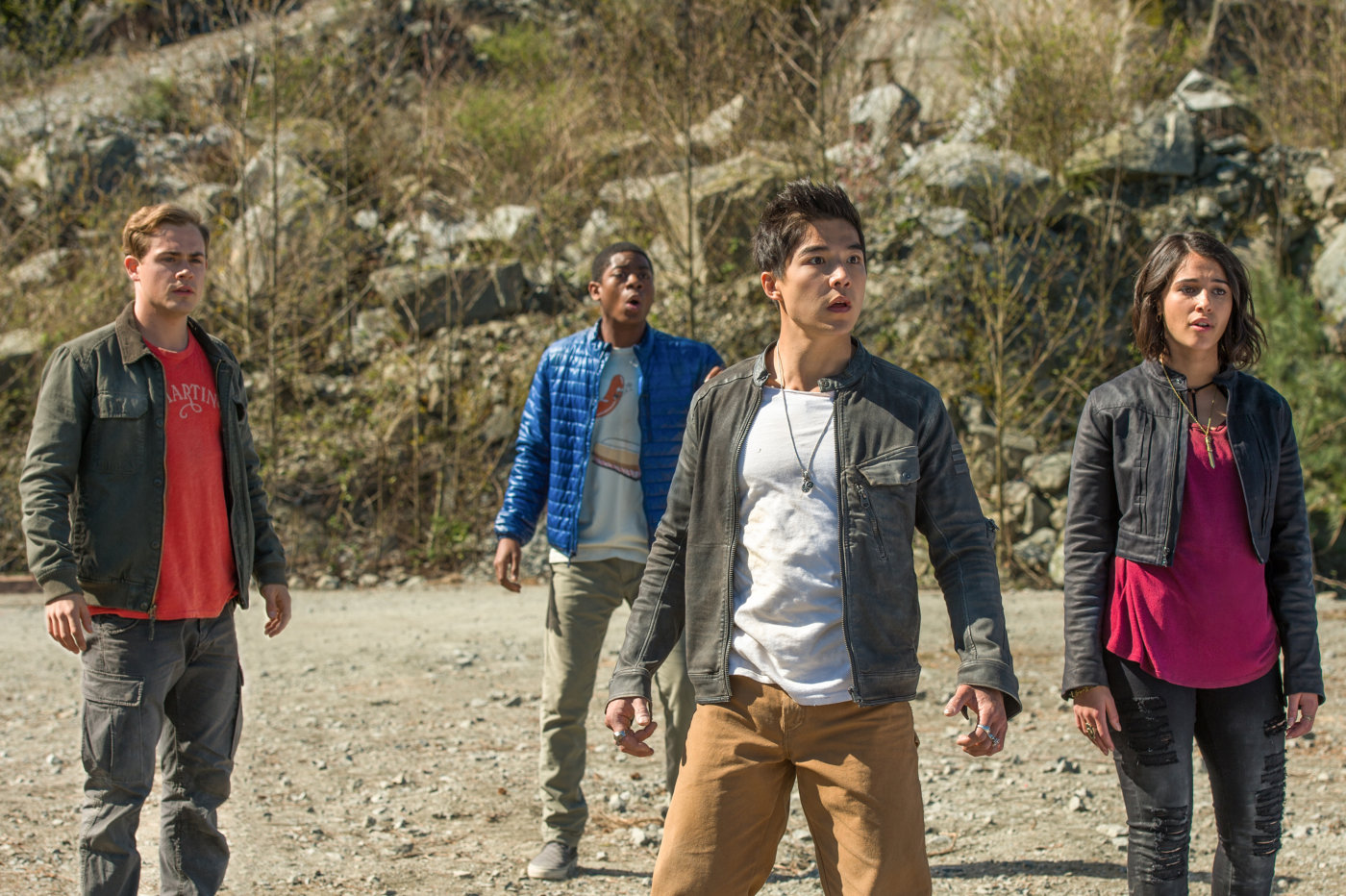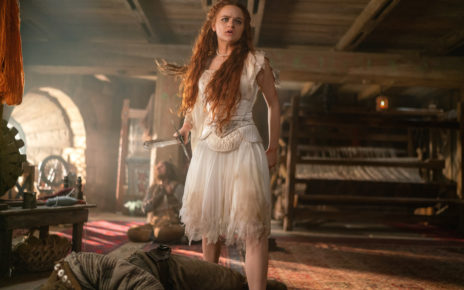China needs a “Hogan’s Heroes.” It all seems so clear right now. It was much easier to deal retrospectively with the hate of the Axis powers when you factored in buffoonery. Not every German soldier was out for physical and ideological world domination, you see; many were just rule-abiding morons. And it’s much easier to deal with ninnies-not-Nazis, silly-goose-not-goose-stepping, doofus-not-luftwaffes. “Hogan’s Heroes” had, I’m sure, very little basis in fact, but seeing the Third Reich as consisting of everyday idiots who just happened to be playing for the wrong team is a useful bridge. China really needed one of those during its period of isolation following WWII. Seeing Jackie Chan attempt the lighter side of occupied Manchuria in 1941, I’m sure “Chan’s Heroes” wouldn’t go amiss in today’s China, either.
The Japanese army controlled a great deal of eastern China in World War II, but a band of unarmed Chinese Robin Hoods, the Railroad Tigers, are there to mess with the occupying force … that is if they can figure out how to draw their adorable tiger symbol. Railroad Tigers went to lengths to introduce each member with a freeze-frame title overlay. E.g. “Ma Huan, Leader of Tigers. Catch phrase: ‘Shut Up’ “ This format proved mildly useful for the first five portrayals, but grew annoying when describing the twentieth named character in the film. I’m going to assume here that the railroad-crew-turned-bandits weren’t part of the greater Chinese war effort for lack of standard soldier demographics (Jackie Chan is over 60, after all), but that doesn’t quite explain a number of the younger Tigers, like Zitao Huang, Kai Wang, and Jackie’s son Jaycee Chan.
And these Tigers aren’t stubborn as oxen, they’re cocky with rabbit-like deftness. The group loves to horse around Japanese munitions or monkey with Japanese operations, making a pig of the Rising Sun war effort. Although they often get eachother’s goat, the team exhibits dogged loyalty at all times; no member would turn snake and rat out another to the foe. God, this paragraph is dragon.
In other words: they get on trains; they mess with stuff, then they play dumb. At that point, Jackie decides they gotta blow up a bridge because the injured soldier they aid can’t get the message to his platoon. What is it with the blowing up bridges to thwart the Japanese?
The biggest takeaway from Railroad Tigers is when the Chinese are involved in the resistance, the tone is light and comical instead of the dour and depressing we’re so used to in English/American films  about the Japanese occupation of SE Asia. This is true despite the exact same elements occurring – starvation? Yup. Military enforcement? Yup. Tragic death? Yup. Blowing up bridges? Already discussed. The tone of Railroad Tigers, however, remains consistently fluffy even when completely inappropriate. Imagine if at the end of Bridge on the River Kwai, Colonel Saito gets shot in the ass for comic effect, and you have the level of serious we’re dealing with here.
about the Japanese occupation of SE Asia. This is true despite the exact same elements occurring – starvation? Yup. Military enforcement? Yup. Tragic death? Yup. Blowing up bridges? Already discussed. The tone of Railroad Tigers, however, remains consistently fluffy even when completely inappropriate. Imagine if at the end of Bridge on the River Kwai, Colonel Saito gets shot in the ass for comic effect, and you have the level of serious we’re dealing with here.
Of course, there is only one person who could keep a gang called the “Tigers” at bay; does Japan have an Encyclopedia Brown?
As Jackie Chan has aged, he seems to be concentrating more on history than stuntwork. I fear the days of him taking on a dozen thugs armed only with a set of bagpipes and Milton’s red stapler are behind him. Yes, I mourn this as much as you do. Doesn’t mean he’s incapable of entertaining an audience, but it’s significantly harder than it used to be.
♪Rising Sun
Scourge of the tracks
Take your time, look for chances
Went the distance on the Beijing Amtrax
Just some punks and their will to collide
So many times
These pics just don’t last
You need a passion for Jackie
Just blink an eye and the credits roll past
Now here’s something that they haven’t tried
They’re the Railroad Tigers
Getting into the fight
Keeping watch on departures
And arrivals
And the stunt synchronizer
Can take a breather tonight
Cuz the action is mild with this gang: Railroad Tigers♫
Not Rated, 124 Minutes
D: Ding Sheng
W: He Keke, Ding Sheng
Genre: “Hogan-san!”
Type of person most likely to enjoy this film: Chinese nationalists
Type of person least likely to enjoy this film: Japanese folks
♪ Parody inspired by “Eye of the Tiger”



